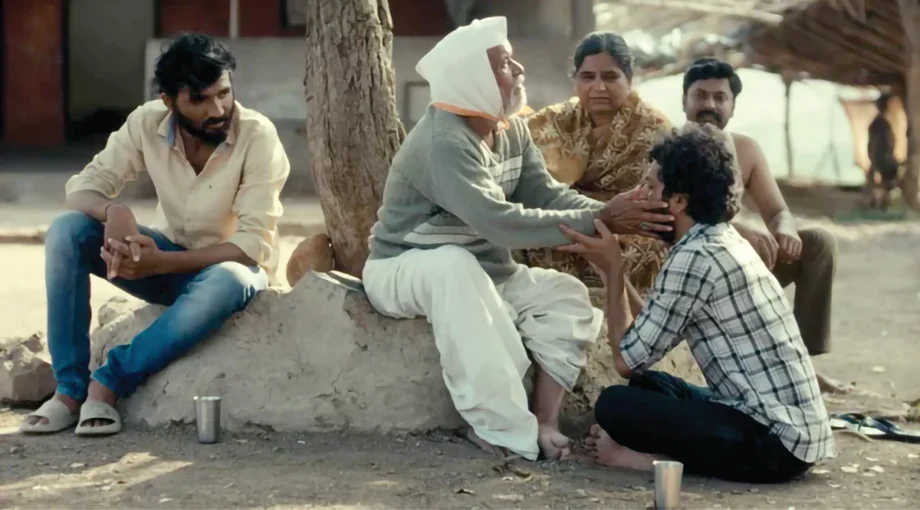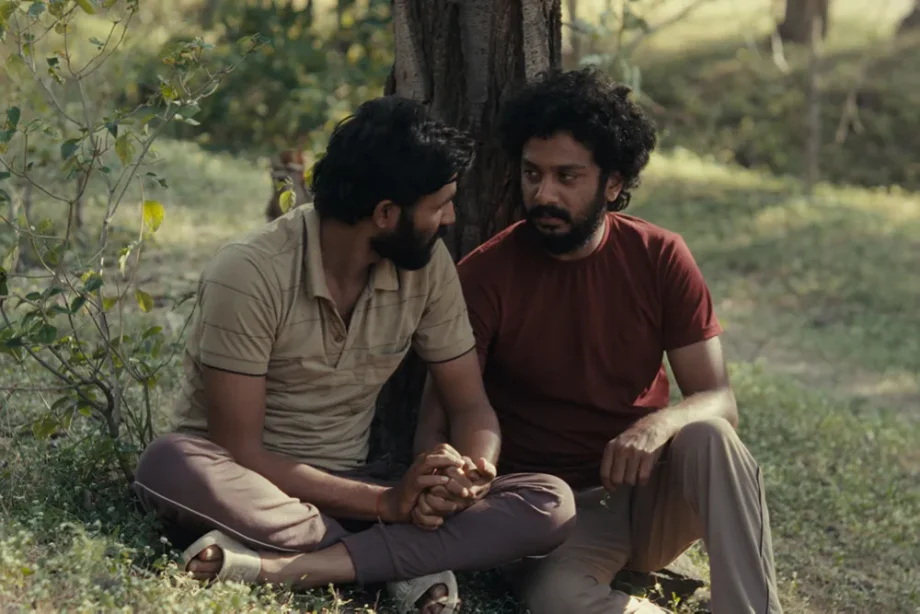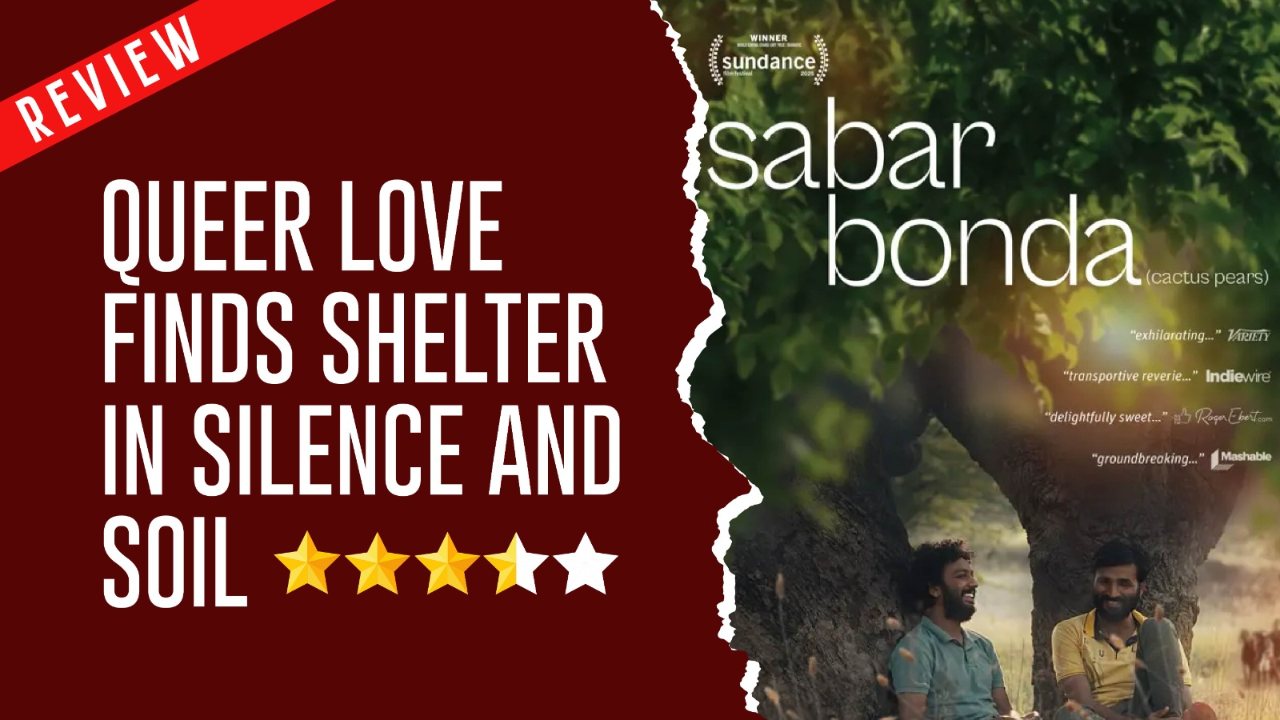What is love, if not the courage to exist gently in a world that demands noise?
In Sabar Bonda, love does not arrive with epiphany or defiance. It seeps in like groundwater after a long dry spell. Unnoticed, essential, never dramatic. There is no proclamation here, only the soft persistence of being. A quiet, unclaimed intimacy between two men, folded carefully into the creases of rural routine, like a letter never posted.
Rohan Parashuram Kanawade’s film does not make a case for queer love. That would imply it needs defending. It doesn’t. What it does instead is something braver. It lets it exist without spectacle, without explanation, without the weary armour of trauma. The film is not interested in educating or shocking. It simply is. And that is radical.

Grief hangs over Anand. Not just for his father, who was perhaps the only person to truly see him. But for all the versions of himself he’s had to bury over the years. The ancestral village he returns to does not offer nostalgia. It offers scrutiny. Marriage talk. Glances that probe without asking. Here, queerness is not spoken of, yet it’s everywhere. In what is not said. In what is not looked at. In what is never asked directly. Silence isn’t emptiness here. It is survival.

Then we witness Balya. He’s not a plot device. Not a lover. Not a saviour. He’s something more ambiguous. A shared history. A possible future. A wound that feels like home. Played with devastating stillness by Suraaj Suman, Balya doesn’t demand to be loved. He simply offers a space where love might live, if only for a moment, if only between goat calls and distant thunder.
And the village. It is not backdrop. It is character. The cracked earth, the low hum of wind, the unremarkable houses painted in fatigue. They all conspire to create a landscape so tangible you can almost smell the dust. This is not the exotic rurality of city-born lenses. It is lived-in, stubborn, recognisable. One does not gaze at it. One returns to it, as to a story you didn’t realise shaped you.
The film risks slowness and sometimes slips into inertia. It requires patience. But perhaps that’s the point. Sabar Bonda demands the kind of attention that most cinema has forgotten how to ask for. The kind that listens instead of watching.
There are no grand takeaways here. No narrative bows. But something changes, subtly, by the end. Not in the story, but in you.
And that is enough.
IWMBuzz rates it 3.5/5 stars.

